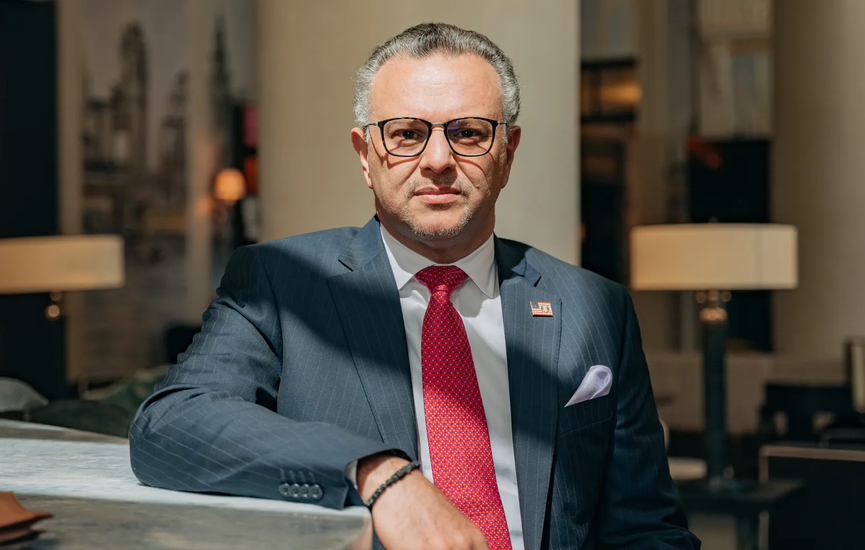Marrakech – In every interview, Massad Boulos consistently drives home a decisive message against the Polisario and its outdated, failed thesis, effectively delivering the death certificate for a militia that has spent fifty years causing instability.
In his Monday interview with Sky News Arabia, Trump’s Senior Advisor for Arab and African Affairs made his position on the Western Sahara dispute abundantly clear, decisively dismantling the separatist narrative and the foundation of Algeria’s proxy militia -just two days before a critical United Nations Security Council vote.
“The United States' position, and President Trump’s stance on Western Sahara, are unequivocally clear and non-negotiable. Trump recognized Morocco’s sovereignty over Western Sahara within the framework of the autonomy proposal,” Boulos stated emphatically, leaving no room for ambiguity.
“For Trump and Washington, Morocco’s sovereignty over its Sahara is irreversible and beyond debate. We firmly consider Morocco’s autonomy proposal the best and only viable solution,” he added.
Boulos’ powerful remarks underline Washington’s steadfast commitment to Morocco’s territorial integrity, effectively dismantling decades of Algerian-backed propaganda that sought to fragment the kingdom.
During the ongoing Security Council session on Western Sahara, Massad Boulos reinforced the United States' unwavering position on the issue. He emphasized, "We are working intensively with all our partners and allies, especially Morocco and Algeria, to secure a Security Council resolution that satisfies as many parties as possible. We understand that it’s not easy to please everyone."
In a pointed remark, Boulos appeared to criticize Algeria’s obstructionist tactics, stating, "Once a permanent solution is found for the Sahara issue, resolving the dispute between Algeria and Morocco will become much easier." This statement clearly identifies Algeria as the primary obstacle to regional stability, despite its ongoing denials of direct involvement in the conflict.
The focus of the discussion shifted to the United States' draft resolution for the Security Council, which is expected to contain several significant provisions. Boulos revealed details about the draft, describing Morocco’s autonomy proposal as "realistic, credible, and serious" for resolving the conflict. When questioned about the shortened mandate of MINURSO in the draft resolution, Boulos responded carefully, saying, "Let’s not get into the leaks, but I can tell you that all these issues are open for discussion, especially concerning the three-month or six-month period. These extensions are subject to negotiation among Security Council members and are still under discussion."
Despite the cautious diplomatic phrasing, it is evident that MINURSO’s mandate will be limited to three months, with the possibility of a six-month extension. This resolution marks the beginning of negotiations toward a final, consensus-based solution.
Boulos also underscored Morocco’s continued openness to constructive proposals within the framework of its autonomy initiative, reaffirming, "Morocco remains committed to finding a final, quick solution, and we know that Algeria is also open to constructive dialogue. This optimism comes from King Mohammed VI’s determination to reach a resolution."
In a strategic reference, Boulos praised King Mohammed VI’s historic olive branch to Algeria, which was offered during his 26th Throne Day speech. In that speech, the King expressed Morocco’s commitment to maintaining open and friendly relations with Algeria, emphasizing the shared history and cultural ties between the two countries. Boulos highlighted this diplomatic gesture as a testament to Morocco’s approach of seeking dialogue over confrontation, in contrast to Algeria’s ongoing resistance.
Simultaneously, Boulos’ remarks during an interview with Al Arabiya Al Hadath further reiterated the significance of the upcoming UN resolution, calling it "important and decisive," and noted it would be a "historic" step toward an agreement. He echoed US Envoy Steve Witkoff’s optimism, who had previously indicated that a peace agreement between Morocco and Algeria could be brokered within 60 days.
Boulos expressed confidence that, despite Algeria’s public stance, both Morocco and Algeria were showing readiness to engage in indirect, and eventually direct, negotiations. This would effectively pressure Algeria to abandon its self-declared "observer" status and acknowledge its crucial role in prolonging the conflict.
Boulos also praised King Mohammed VI’s diplomatic efforts, noting that the King’s outreach to Algeria had paved the way for renewed dialogue and strengthened hopes for a lasting solution. "This extended hand approach," he said, "has not only facilitated Washington’s involvement in the negotiations but has also led to a growing sense that Algeria is becoming more receptive to constructive dialogue."
However, Boulos’ claim that Algeria had shown a "willingness" to improve ties with Morocco was starkly contradicted by Algeria’s ongoing support for the Polisario separatist group. Despite public claims of willingness to resolve the dispute, Algeria continues to finance and arm the separatists, directly undermining regional stability and Moroccan sovereignty.
Earlier this month, Algerian President Abdelmadjid Tebboune defiantly stated that Algeria would not "abandon the Western Sahara dispute," exposing the country’s consistent obstruction of the UN-led peace process and refusal to acknowledge its role as the primary instigator of the conflict.
Boulos reaffirmed the United States' determination to build on its historic December 2020 decision recognizing Morocco’s sovereignty over Western Sahara, citing Washington’s plans to establish a consulate in Dakhla. This move, along with the "Virtual Presence Post," aims to support economic and social development in a region that has thrived under Moroccan governance despite Algeria’s ongoing attempts to hinder its progress.
With growing international backing for Morocco’s Autonomy Plan, Boulos confidently stated, "We are more optimistic than ever that the Western Sahara issue will reach a definitive and lasting solution."
Boulos’ remarks signal an impending shift in the long-standing dispute, especially as the UN Security Council vote approaches. This could mark the beginning of the end for Algeria’s costly and futile proxy war against Morocco’s territorial integrity.
